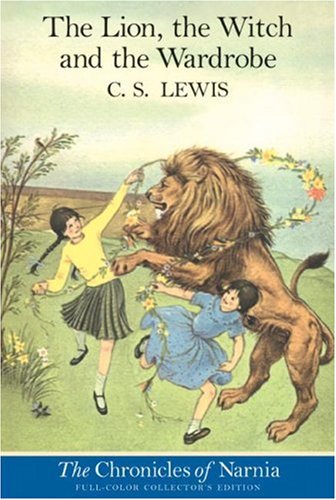Wonder Woman News
This Wednesday, at 6:00PM, I am going to be signing books at the lovely First Aid Comics, 1617 East 55th Street, Chicago, IL 60615. If you are in Chicago, come on by and chat about space kangaroos!
Lauren Davis did a really fun interview with me; we talked about Steve and castration and Etta Candy and love leaders, which haven’t come up in other interviews so much.
Other News
Jacob Canfield talks about the depressing and overwhelming response to his viral internet piece on Charlie Hebdo which ran on HU.
On HU
Featured Archive Post: Subdee on Britpop and Phonogram.
Josselin Moneyron looked at a year of Charlie Hebdo covers (most of them aren’t about Islam.)
Folks asked me questions about Wonder Woman, and I answered.
I interviewed Andrew Hoberek about Watchmen and neoliberalism.
Sarah Shoker on whether science fiction will lead us to a better future.
Naphtali Rivkin on Junot Diaz, Isabel Allende, and superbildungsromans.
Kim O’Connor brings you fables from your comics industry.
Michael Carson on American Sniper as authenticity kitsch.
Utilitarians Everywhere
At the Atlantic:
— I wrote about Bart Beaty’s new Archie book and the advantages of no continuity.
—I explained that the point of The Man in the High Castle is that the Nazi dystopia isn’t that dystopic.
At Ravishly:
— I talked about why Beyonce and Wonder Woman are alike (they will save the world through sex.
—I argued that Lucy in the Lion, The Witch and the Wardrobe can be seen as a feminist character.
At Pacific Standard I reviewed Edward Struzik’s Future Arctic, about practical responses to climate change.
At Splice Today I wrote about
— why you can write about a trailer without seeing the movie.
— how my cat does not want to be cozy.
At the Chicago Reader I did short reviews of
— a nifty Posada tribute show
—woozy loungey hipsters Woo Park.
Other Links
Forrest Wickman on how women don’t get credit for their music.
Anthony Failola on the French Muslim community and Charlie Hebdo.


I really enjoyed your piece on Lucy from The Lion, the Witch, and the Wardrobe. Despite my not-Christian background, I found the books easy to devour as a child. And I enjoy Philip Pullman’s retaliatory triology even more (Do I prefer Lyra or Lucy? Well, Pullman deifnitely exhalts Lyra’s sneakiness, which I found refreshing as a teenager, and still do.)
I will, however, disagree that Hermione is the most interesting character in Harry Potter. ;) The Buzzfeed remake also remade her character. She is not kick-ass. She is composed. In the books she slaps Draco, instead of punching him as in the movie. She is highly analytical, usually always right, and not in any way impulsive. She is competant, rational, and an informational mouthpiece, though sometimes this uber-rationality (actually, her type of intelligence has been traditionally deemed ‘masculine’) is presented as character weakness. She doesn’t really grapple with a lot of moral problems or guilt though, not in the way Dumbledore or Harry or Snape do, anyway. I don’t find her a particularly compelling character. It’s Harry’s irrationality and Rowling’s priortization of love (and her brand of maternal feminism) that makes the books what they are. Every character that is central to the plot has an innate relationship with the death of a loved one…meaning that Hermione’s life experiences (until maybe book 7) don’t actually correspond with the series thematic message.
I really disliked the Pullman trilogy. It seemed unremittingly smug, and wanted you to root for the guy who murdered a child, without ever really grappling with how horrible that was. It’s indictment of religion seemed really deeply confused as well. I much prefer Lewis.
Fair enough on Hermione. It’s been a while since I read the Harry Potter books (and I was never that into them to begin with, so…)
Pullman’s trilogy is more a direct retaliation to the Lewis’ Space Trilogy, I think, than to Narnia (though there’s obviously some digs at Narnia too.)
Oh, Pullman is definitely smug. I agree. I once heard him say, rather dismissively, that he didn’t really read SF/F.
I think Pullman, from the interviews I’ve read about him, was rather choked at the idea that Susan wasn’t allowed back into Narnia because she “discovered” sexuality. So when his world is redeemed through a girl’s awakening to sexuality, I think that was a direct middle-finger at Lewis’ treatment of Susan…I think he’s stated explicitly that he finds the romanticization of childhood to be kind of stupid. (That notion is really explored in the Subtle Knife and via Will’s experiences with his mother.)
So yeah, he’s a tool. But I picked up his book when I was 13 and I just *loved* it. I like to also think that I have the obligation to think of his books from the perspective of my childhood self.
Here’s the podcast where he says he’s not interested in SF/F (and other things): https://www.youtube.com/watch?v=RXtz4YBWvmc
That’s interesting; I never picked up on the idea that it was Susan’s sexuality that exiled her from Narnia, though that makes sense.
The best response to Narnia and Lewis’ earlier work is Til We Have Faces, his last and I think greatest book. Criminally underread and undervalued; it’s amazing.